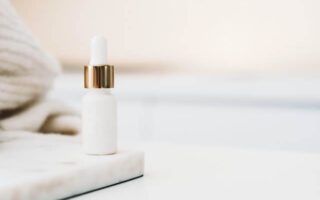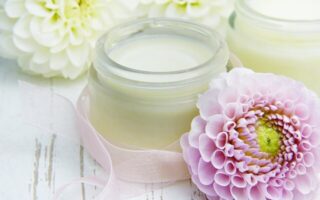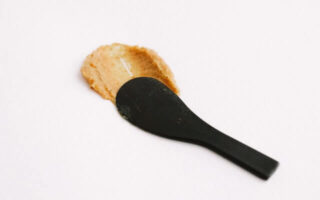One of the most common questions I get from my clients and readers is, “If I damage my skin barrier, how long should I wait to chemical and physical exfoliation?”
So, let’s dive right in and answer that question!
What skin barrier means?
A skin barrier is the outermost layer of the skin. The cells that make up our skin barrier are called corneocytes. To picture this, think of these cells as bricks in a wall. The fats such as ceramides, cholesterol and fatty acids work together to act as mortar between these cells, holding them tightly together.
What is the function of the skin barrier?
The skin barrier’s primary function is to protect the body from harmful environmental factors such as irritants, bacteria and ultraviolet radiation. It also helps to regulate moisture levels and prevent the water inside your body from evaporating.
What happens if you damage your skin barrier?
Your skin barrier is the topmost protective layer of your skin. And when you damage it, the tightness between the cells is lost. This can result in the entry of irritants easily into your skin, which can lead to inflammation. Plus, water within your body also starts to evaporate at a faster rate, leading to dry skin. You may also experience itching, burning, or stinging. In some cases, you may even develop eczema or other skin conditions.
How do you know if skin barrier is destroyed?
Some of the signs and symptoms that the skin barrier has been compromised include:
- dry skin
- increased sensitivity
- rough skin patches
- weakened immune system
- viral, fungal and bacterial infection
- inability to fight against infection
- dehydration
What damages your skin barrier?
Some of the common internal and external factors that can damage your skin barrier include:
- Over-exfoliating and over-washing
- Irritants and pollutants
- Using harsh skincare products
- Stress
- Not getting enough
- Over sun exposure
- Age
- Genetics
So, now to the question at hand:
Should you exfoliate if your skin barrier is damaged?
No, you should not.
Exfoliating will only further damage your skin barrier and leave your skin susceptible to environmental aggressors. If your skin barrier is already damaged, you must focus on repairing it, not exfoliating it.
How long does it take to repair a damaged skin barrier?
It can take several weeks to repair a damaged skin barrier. Depending on the severity of the damage, it may take longer. Depending on the extent of the damage, it can take anywhere from 2-6 weeks to 6 months for a full recovery.
How do you fix a damaged skin barrier?
You can try a few different things to help fix a damaged skin barrier. Let’s start with the basics:
Determine the Root Cause
In order to improve your damaged skin barrier, you first have to determine the root cause of the problem. This could be due to a skin infection or allergy, or maybe you’re washing and exfoliating too much. Alternatively, it could be that you’re not getting enough sleep. Once you’ve determined the root cause, you can treat it accordingly.
Stop Over-Washing and Over-Exfoliating
There is a lot of information out there on how to take care of your skin, but sometimes it can be overwhelming. It can be easy to get caught up in the hype and start over-washing and over-exfoliating your skin. This can actually do more harm than good and cause your skin to dry and irritated.
Washing your face more than twice a day can strip your skin of its natural oils, causing it to produce more oil to compensate. This can lead to clogged pores and breakouts.
Exfoliating too often can irritate your skin and cause redness, dryness, and flaking. If you have sensitive skin, over-exfoliating can even cause burns and rashes. It’s important to find a balance that works for your skin type.
So, stop over-washing and over-exfoliating.
Uncomplicate Your Skincare Routine
Despite what some advertisements might claim, you don’t need a bunch of different skincare products and an overly complicated daily routine to achieve healthy skin. This is more true when you’re dealing with a damaged skin barrier.
Follow a basic skincare regimen, i.e. Cleansing, Moisturizing, and Sunscreen if your skin barrier is compromised. Don’t overtax your skin with exfoliating or other harsh treatments.
Use Essential Plant Oils
Try essential plant oils to help repair your damaged skin barrier. These oil’s antibacterial, anti-inflammatory and antioxidant properties can speed up healing.
Try the following plant oils:
- Argan Oil
- Jojoba Oil
- Coconut Oil
- Almond Oil
Moisturize, Moisturize, Moisturize
Moisturizing is key to repairing a damaged skin barrier. Look for a moisturizer that contains hyaluronic acid, glycerin or petrolatum.
Moisturizer prevents the loss of water from the surface of your skin. It helps keep moisture in and keeps your skin looking plump and hydrated.
A good rule of thumb is to apply moisturizer immediately after cleansing, while your skin is still damp. This will help lock in moisture.
Have Patience
It can take some time to repair a damaged skin barrier. Be patient, follow a simple skincare routine and don’t overdo it. With time and care, your skin will heal itself.
What ingredients help to repair skin barrier?
Look for the skincare products with the following ingredients when dealing with a damaged skin barrier:
- Hyaluronic Acid
- Ceramides
- Glycerin
- Free Fatty Acids
- Aloe Vera Extracts
- Panthenol
- Niacinamide
The Bottom Line
A damaged skin barrier is a common problem, but it can be fixed. The key is to determine the root cause of the problem and then take steps to fix it. This might involve simplifying your skincare routine, using essential plant oils or changing your diet. Be patient and give your skin time to heal. With the right care, your skin will be healthy and glowing in no time.




